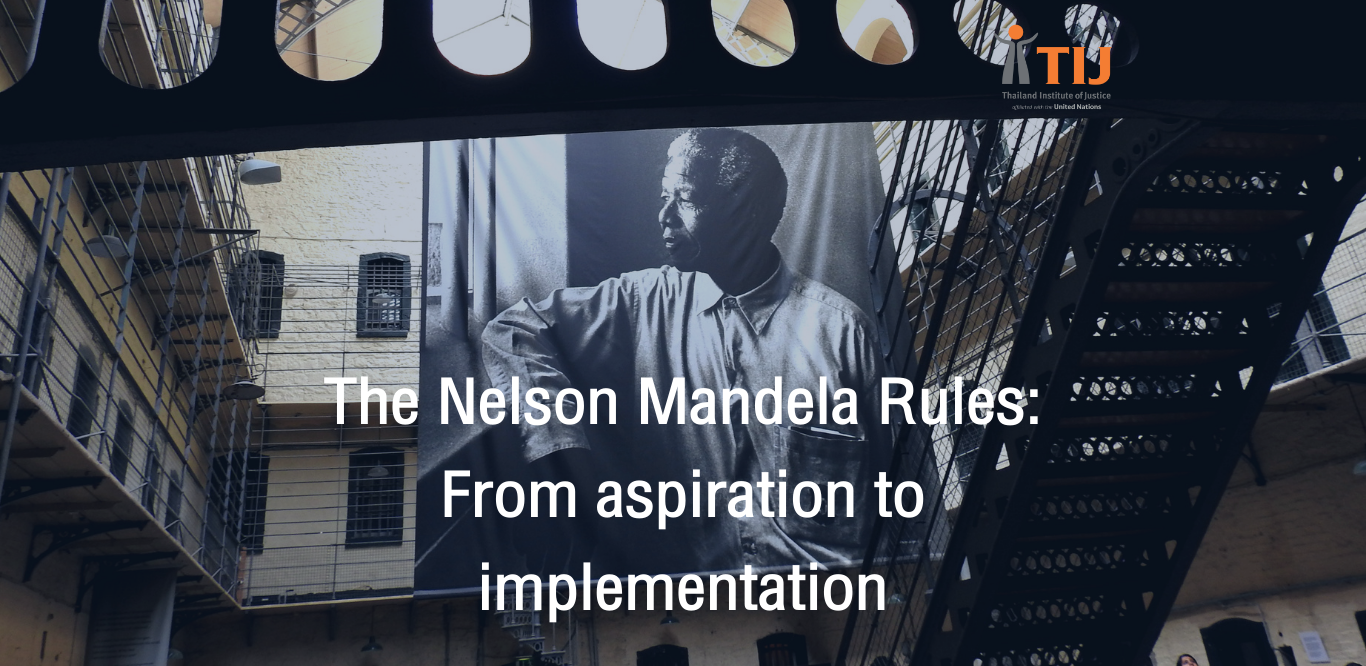The Nelson Mandela Rules: From aspiration to implementation
By: Office for the Bangkok Rules and the Treatment of Offenders
Under the shadow of the ongoing pandemic, the Mandela Rules has become increasingly relevant to the correctional system more than ever.
One of the notable legacies Nelson Rolihlahla Mandela (fondly known as “Madiba”, translated to “Father of the Nation”) has left behind is the dawn of the narrative on prisoners’ rights protection, which ignites the global movement for humane treatment of the prisoners. After his 27-year of imprisonment in the course of his journey to seek equality, human rights, and democracy, he has shined a spotlight on the need to improve the rights and treatment of the prisoners. As he acclaimed in his book ‘Long Walk to Freedom’, “It is said that no one truly knows a nation until one has been inside its jails. A nation should not be judged by how it treats its highest citizen, but its lowest ones.” In 2015, the UN Standard Minimum Rules for the Treatment of Prisoners (SMRs) which was adopted back in 1955, were revised and adopted by the General Assembly and was named the Nelson Mandela Rules to honour his legacy.
The Nelson Mandela Rules, comprising 122 rules, were revised to improve nine thematic areas which cover all aspects of prison management, ranging from prison staff training to rehabilitation programs. Since then, the attention towards prison management has been elevated. There have been various efforts from its Member States in the past years to put the Rules into practice. Even though the Mandela Rules aren’t legally binding, they have been used as a reference to improve the prison system and guided policy reform in many countries and regions. For instance, in Europe, with the new progressive provisions of the Mandela Rules adopted in 2015, some provisions of the European Prison Rules (EPR), a guideline which regulates prison management in the region, were lagging behind the improved international standards. Thus, the EPR were revised and adopted by the Council of Europe’s Committee of Ministers in July 2020. Most of the revised rules are now aligned with the Mandela Rules and provide greater protection for prisoners. One of the key developments in the latest version of EPR is related to solitary confinement and it was guided by the Mandela Rules.
To reinforce the importance of the Rules, there are increasing tools and publications to support policy makers and practitioners worldwide. This includes the Guidance Document on the Nelson Mandela Rules: Implementing the United Nations Revised Standard Minimum Rules for the Treatment of Prisoners developed by OSCE and PRI. Also, the UNODC has offered several tools and launched the Nelson Mandela Rules E-Learning course to provide a better understanding and assist the practitioners in the application of the Rules.
The explosion of Covid19 cases in prisons around the world evokes the discourse on the vulnerability of prison and the imprisoned people, reaffirming that the principles and provisions contained in the Mandela Rules are more relevant today than ever. There may be a long way to go for countries around the world to entirely reform their prison regimes to be in compliance with international human rights laws. That said, the Mandela Rules will be one of the benchmarks as well as guidances in the time of crisis to ensure that we have done everything necessary to ensure prisoner’s safety and protect their inherent dignity as human beings.
_______________
In order to shed light on the situation in Thailand and reaffirm in the importance of the Nelson Mandela Rules, the Thailand Institute of Justice in collaboration with the UNODC will hold a webinar under the topic of “Prison Management during the COVID-19 Pandemic and the implementation of the Nelson Mandela Rules” on July 29th, 2021 starting from 2 PM Bangkok time (via Zoom). Please click here to register.
The webinar is available in Thai and English.
-------
References
1. https://www.unodc.org/easternafrica/en/Stories/uganda-strengthens-capacity-of-prison-officers-to-address-violent-extremism-in-prisons.html
2. http://legacy.senate.gov.ph/press_release/2018/0721_delima1.asp
3. https://en.sun.mv/61767
4. https://www.prison-insider.com/en/articles/regles-penitentiaires-europeennes-faire-avancer-la-discussion
5. https://www.penalreform.org/news/revised-european-prison-rules-provide-greater-human-rights
6. https://www.osce.org/odihr/389912
7. http://en.correct.go.th/wp-content/uploads/2020/09/PDF-file_Corrections-in-Thailand-2019.pdf
8. https://cdn.penalreform.org/wp-content/uploads/2020/07/Coronavirus-briefing-July-2020.pdf
9. https://www.theargus.co.uk/news/19394071.inmates-hmp-lewes-locked-cells-23-hours-report-says/
10. https://cdn.penalreform.org/wp-content/uploads/2020/07/Coronavirus-briefing-July-2020.pdf
11. https://www.facebook.com/prthaidoc/photos/pcb.4090374304349796/4090373784349848/
12. https://news.thaipbs.or.th/content/304286
13. https://mgronline.com/uptodate/detail/9640000062150




